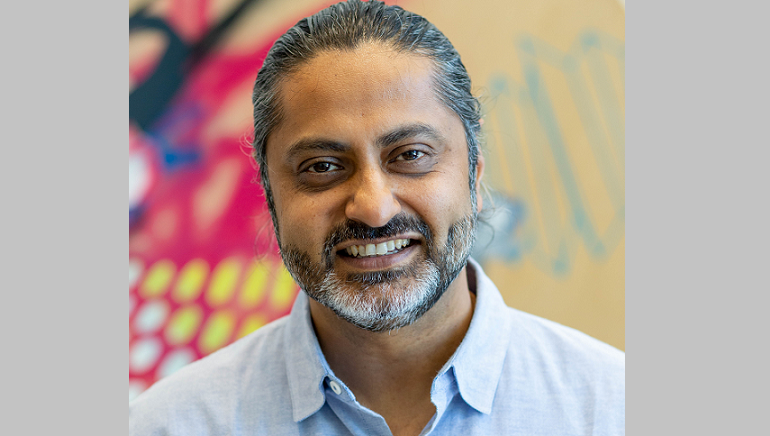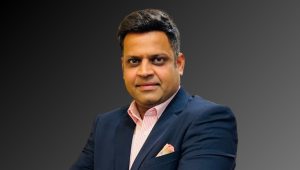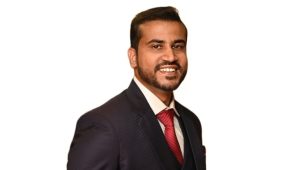Born and raised in northern India, Razat is a global citizen that has lived in London, Toronto, and Chicago, before most recently settling in Austin, Texas in 2021.He first came to the United States to further his education, pursuing his Bachelor of Science in Engineering from the Illinois Institute of Technology, Chicago.
He began his career as a management consultant after college and since then has served in executive leadership positions at several organisations, including Blue Yonder, i2 Technologies, and Ernst & Young’s management consulting practice. Additionally, he served on the Board of Directors of Sparta Systems and Llamasoft. During his tenure as the CEO of Llamasoft, Razat was instrumental in developing AI-based supply chain design and decision making products, a strategy that resulted in doubling the company’s revenue in 3 years and a successful $1.5 billion acquisition by Coupa in 2020.
In his current capacity as the CEO of Planview, Razat is helping companies transform and adapt in an increasingly complex business environment that requires a renewed focus on how to prioritize and operationalize critical initiatives across the business.
A PURPOSE-DRIVEN LEADER
Among Razat’s fundamental life quotes, is from Dr. Martin Luther King: “If you can’t fly, then run, if you can’t run, then walk, if you can’t walk, then crawl, but whatever you do, you have to keep moving forward.” These are powerful words that have motivated him to consistently learn and adapt regardless of the circumstances, while also encouraging him to be passionate, proactive, and tenacious both in his professional and personal life. Throughout the course of his career in enterprise software, Razat has worked with and led diverse teams focused on solving customer pain points and creating more value for customers by leveraging leading technologies. These experiences have provided him with a holistic understanding of the opportunities and challenges faced by executives undergoing digital transformation, along with the need to connect strategy with delivery – especially in times of great change. Major macro shifts – from digital transformation, to changing ways of working, to faster innovation cycles creating fierce competitive pressure – have highlighted the need for businesses to operate more dynamically and with greater agility than ever before. At the same time, businesses must ensure that their teams are working on the most important work for the business, aligned with company strategy. It calls for a carefully constructed strategy and a thoughtful approach to connecting work across the business.
According to Razat, “The strength of an enterprise depends on the connections between its component parts – between teams and ideas, ideas and impact, and opportunities and value.” He continues, “Removing functional, hierarchical, physical and even communication silos that block or hinder an organisation’s ability to connect its strategy to the work being delivered will be the key to navigating an increasingly changing market. Organisations that fail to do so will face significant business challenges in the near future.”
EMPOWERING TEAMS IN UNIQUE WAYS
According to Razat, organisations must create a business environment in which all employees are empowered to deliver their best work and can see how their day-today-jobs are influencing the strategic direction of the company and customer outcomes. In his opinion, this emerging future has the potential to give everyone a license to innovate and democratize data-driven decision-making in the enterprise. Simultaneously, he stresses the importance of transparency in leaders, which allows knowledge to cascade and empowers teams to make local decisions more rapidly. The highly proficient leader believes that the most influential factor in the job labor market in the recent years has been the speed at which changes have occurred. Owing to the severe shortage of talent, especially in the technology field, companies need to keep attracting, developing, and retaining their workforce. In addition, generational changes have had a profound influence on the workforce according to him.
EMPHASIZES FUTURE-DRIVEN WORK CULTURE
Razat sees the future of connected work as one centered around empowering employees to deliver their best work, no matter how they work, aligned with company strategy and in service of the organization’s most important priorities and initiatives. He also believes that creating transparency in an organization and visibility into work being done will go a long way in shaping the future of connected work, as companies can become more nimble and improve the ability to shift resources when and where they are needed to boost output. To be competitive in today’s environment, companies must create faster planning cycles. Companies must plan and replan more frequently, with more focus on bi-directional feedback between the teams doing the work and those setting company strategy. To make better strategic decisions for the company, executives need information from teams closest to the work those teams are ultimately closest to customer needs. He asserts that at the same time, leaders must be transparent in their mission and vision for the organization, cascading information to empower teams to make local decisions more rapidly. He suggests that this real-time data will enable faster planning cycles so companies can adapt to changes quickly.
OUTSTANDING ACHIEVEMENTS
In 2020, Razat was recognized by Goldman Sachs as one of the 100 Most Intriguing Entrepreneurs. The goal-driven leader is regularly quoted in esteemed publications, such as The New York Times, Forbes and The Hill, among other top media. Razat is also involved in philanthropic and policy projects linked to medical research, STEM education for minorities, and carbon reduction measures.















